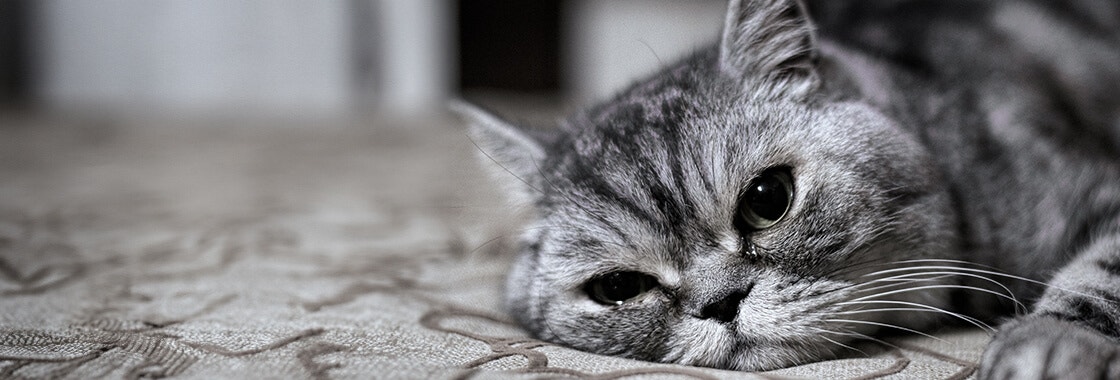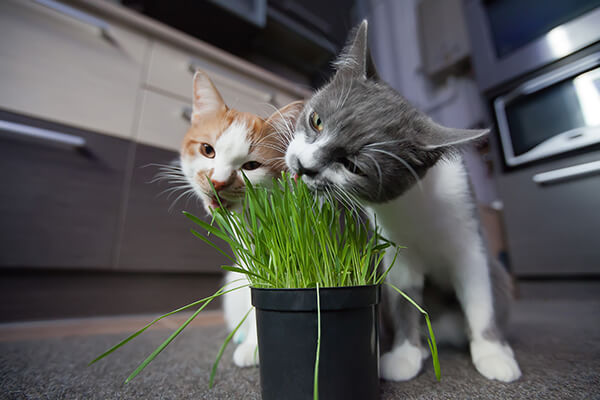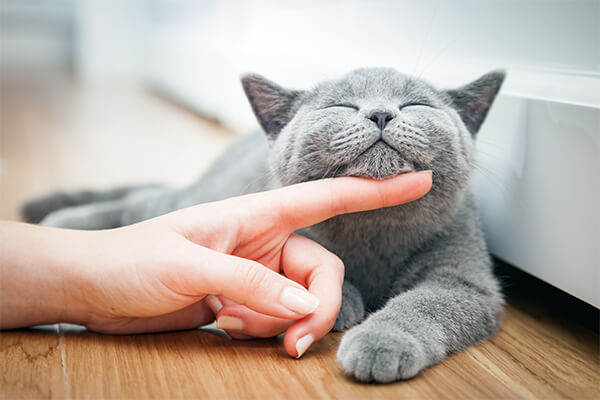- Homepage
- Blog
- Bonding & Care
- Can Cats Cry
Do cats cry? Unveiling the truth


Share
The life of a cat can be emotionally taxing. Your pet parent leaves the house at short notice, doesn’t serve your breakfast the instant you wake up, and refuses to make the outside warm like the inside. But do cats cry when they’re in distress?
Here’s a closer look at the topic of cats crying and how you can understand your cat’s behaviour and communication.
Can cats cry?
So, do cats cry in response to stressors in the same way people do? The short answer is no.
Cats can cry in the sense that their eyes can get watery for physiological reasons, but this isn’t a response to emotional distress as we see in humans.
However, when a cat does experience emotional distress, it’s common for them to “cry” vocally with long, drawn-out yowls, along with more physical warning signs your cat is crying for help. These usually manifest in more obvious, physical signs of distress, such as a loss of appetite, shaking, hiding, or changes in how they use their litter box.
There are a few reasons why you might notice your cat’s eyes watering, such as allergies affecting the eye, feline conjunctivitis, or a foreign body in the eye such as a grass seed, hair or grass. It can also be caused by simple injuries like the eye getting scratched by a branch when your cat is out exploring, or when damaged in an altercation with another cat.
If you notice your cat’s eyes watering constantly, when there are no obvious irritants to cause this kind of reaction, it’s worth consulting your veterinarian to better understand the cause of your cat’s watery eyes.
How do you know when a cat is crying?
Cats display a number of physical behaviours when crying, including high-pitched meows or wails, watery eyes, squinting, and pawing at their eyes. Other behavioural cues, such as flattened ears or a cat not eating, can also be common signs that a cat is distressed about something.
Warning signs your cat is crying for help
If you’ve ever heard your cat crying at night, gone downstairs and found that there’s nothing obvious wrong, this could simply be a natural call for attention, food, or something else.
To determine whether your cat meowing or yowling because they’re distressed about something physical or emotional, there are several more behavioural cues to look out for.
Some common warning signs your cat is crying for help include:
- Meowing excessively even when they’ve had ample feeding, attention, etc.
- Changes in appetite, for example not eating their food or over-eating.
- Sleeping a lot or acting overly lethargic.
- Acting territorial and showing signs of aggression. Check out our guide ‘Why do cats growl?’ for more information on the causes of this.
Whichever way it manifests, sudden changes in your cat’s behaviour can potentially be a sign that your cat is experiencing underlying health issues. If you notice these things happening with no obvious cause, it’s best to consult a veterinarian to keep your cat as healthy as possible.
Why do cats cry?
Like with a lot of feline behaviour, there isn’t a single answer to the question “why do cats cry?”
Cats can cry or yowl for a range of reasons, using acutely different vocalisations to communicate different emotions, such as a want for attention, hunger, emotional stress, or physical pain.
Some of the common reasons you might hear your cat crying include:
Communication: Often, a cat will cry to communicate to people in the house, simply looking for the acknowledgement that you’re there and you hear them. This may be a little annoying at times when you’re busy with non-cat-related things, but is normal behaviour and usually nothing to worry about.
Note that some cat breeds are more vocal than others. The Oriental breeds, for example, are highly vocal and may communicate with drawn-out meows while being perfectly happy.
Seeking attention: It’s very common for cats to meow when they’re craving a stroke, need the door opening, or are after some food.
Mating behaviour: Unspayed or unneutered cats tend to be a lot noisier at certain points of their reproductive cycle. Female cats will yowl when in heat, and males will respond in kind when they smell females in heat.
Stress: Cats reacting to stressful situations, such as when a new pet or a baby is brought home, might cry to express feelings of stress. This might be accompanied with intervals of purring as a way to self-soothe their stress. Read our guide “Why do cats purr?” for more information on this behaviour.
Illness or pain: Like other animals, cats will vocalise when experiencing physical pain from an illness or injury.
Cat crying at night: Understanding nocturnal cries
It might be puzzling if you notice your cat crying at night frequently, but staying relatively passive during the day. Due to cats being nocturnal creatures, it’s not uncommon for certain instincts and behaviours to kick in at night and make them more active.
Some common explanations behind nighttime crying include:
Hunting instincts: Cats’ natural prey like small rodents tend to be more active at night. Although domestic cats don’t need to hunt for their food, the instinctual drive to be more active at night is still very common.
Loneliness: Though cats have a natural independent streak, they’re still social animals, and might experience loneliness at night when their pet parent isn’t around. If you notice a lot of nighttime crying, or a cat is purring loudly at night, this could come from a need for reassurance or companionship.
Territorial instincts: Cats are naturally territorial, and might vocalise at night to assert themselves if they sense other cats or animals in the area.
Helping your cat feel as secure and comfortable as possible during the night is generally the best solution to reduce nighttime crying and give yourself a chance of sleeping through the night.
Creating a cosy sleeping environment, and making sure restless cats have some kind of stimulation in the form of a scratching post, toys, or a puzzle feeder, can help them stay content at night and reduce the habit of crying.
Final Thoughts
We hope this quick guide has given you a better idea of whether cats can cry, why cats do cry, and some of the common causes and solutions behind this behaviour.
For more support with making sure your cat is as healthy and content as possible, be sure to check out our helpful tips on caring for a cat.



